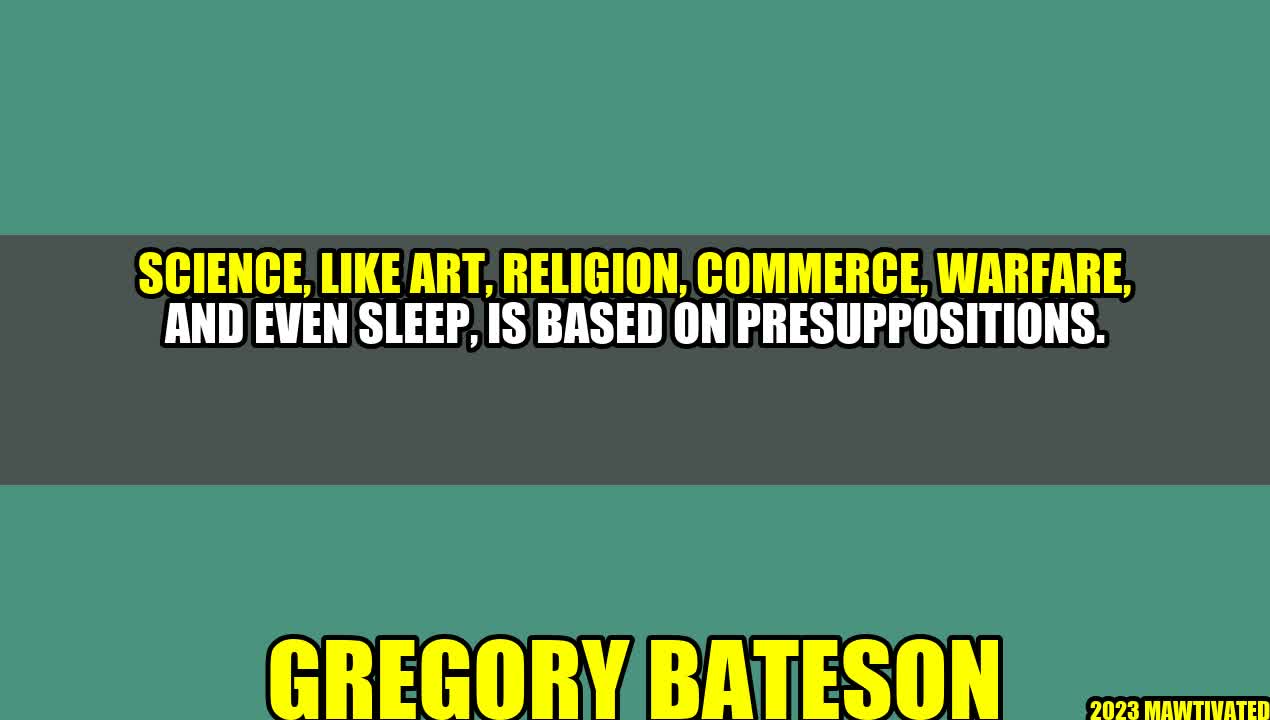The Power of Presuppositions in Science

An Inspiring Tale of Discovery
Once upon a time, there was a scientist named Jane who dedicated her life to studying the behavior of ants in a colony. One day, Jane noticed something odd. A group of ants were huddled together, seemingly doing nothing, while the rest of the colony was bustling with activity. Jane’s initial hypothesis was that the group was sick or dying, but upon closer inspection, she discovered that they were actually planning a heist. The group of ants were preparing to raid the colony of a nearby rival species, and they had come up with a complex plan to do so.
Jane’s discovery challenged many of the presuppositions that scientists had about ants, such as their inability to cooperate across species lines, their lack of planning skills, and their inability to carry out complex tasks. Her discovery led to a paradigm shift in the field of entomology and sparked a new era of research into the behavior of ants.
The Role of Presuppositions in Science
Science, like art, religion, commerce, warfare, and even sleep, is based on presuppositions. A presupposition is a belief or assumption that is taken for granted. It is a foundational element of any field of study or practice. Presuppositions act as filters through which we interpret and make sense of the world. They shape the questions we ask, the methods we use, and the conclusions we draw.
Many presuppositions in science are so deeply ingrained that they go unquestioned for years, even decades. They become part of the background noise of scientific discourse, like wallpaper in a room. However, every once in a while, a scientist like Jane comes along and challenges those presuppositions, leading to a new paradigm or way of thinking.
The Story of Gregory Bateson
“The major problems in the world are the result of the difference between how nature works and the way people think.” – Gregory Bateson
Gregory Bateson was an anthropologist, psychologist, and philosopher known for his work on systems theory and cybernetics. He believed that the way people think about the world has a profound impact on the way the world actually is. His famous quote captures the essence of his philosophy – that many of the problems we face as a species stem from our misguided assumptions about the nature of reality.
Bateson’s story illustrates the power of presuppositions in shaping our understanding of reality. He grew up in a privileged academic family, surrounded by brilliant minds and lively debate. His father, William Bateson, was a biologist known for his work on genetics, and had a profound impact on Gregory’s early intellectual development. As a child, Gregory was fascinated by the world around him, and he developed a deep appreciation for the interconnectivity of living systems.
When he entered college, Gregory was exposed to a new set of presuppositions – the behaviorist philosophy that dominated psychology at the time. He was appalled by the reductionist, mechanistic view of human behavior that behaviorism espoused. He felt that it ignored the complex, dynamic, and interconnected nature of human experience.
Gregory spent the rest of his life challenging these presuppositions and developing new ways of thinking about psychology, anthropology, and philosophy. His work on cybernetics laid the foundation for systems theory, which has become a major paradigm in contemporary science.
Examples of Paradigm Shifts in Science
- The Copernican Revolution – For centuries, scientists and philosophers had assumed that the Earth was the center of the universe. However, in the 16th century, Nicolaus Copernicus challenged this presupposition by proposing that the Earth and other planets revolve around the sun. This Copernican revolution sparked a new era of astronomical research and led to a fundamental shift in the way we understand our place in the universe.
- The Theory of Relativity – For centuries, scientists had assumed that space and time were absolute and unchanging. However, in 1905, Albert Einstein proposed the theory of special relativity, which challenged this presupposition by showing that space and time are relative to the observer and can change under extreme conditions. This led to a new era of research into the nature of space and time, and has had a profound impact on fields as diverse as astrophysics, cosmology, and philosophy.
- The Human Genome Project – For centuries, scientists had assumed that the human genome was a fixed, unchanging entity. However, in the 1990s, the Human Genome Project challenged this presupposition by showing that the human genome is a dynamic, evolving system. This has led to a new era of research into the nature of genetics, and has opened up new opportunities for personalized medicine and genetic engineering.
Practical Tips for Challenging Presuppositions
So how can we challenge the presuppositions that shape our understanding of the world? Here are some practical tips:
- Ask Questions – The first step in challenging presuppositions is to start asking questions. Don’t take anything for granted. Be curious and inquisitive. Ask why things are the way they are, and question the assumptions that underlie them.
- Seek Diversity – Exposure to a diverse range of opinions and perspectives can help you challenge your own presuppositions. Seek out people who have different views, and engage in respectful debate and dialogue. This can help you see the world in new ways and challenge your own assumptions.
- Be Open-Minded – The key to challenging presuppositions is to be open-minded. Don’t be afraid to admit that you might be wrong. Be willing to entertain new ideas, no matter how counterintuitive they may seem at first.

Curated by Team Akash.Mittal.Blog
Share on Twitter
Share on LinkedIn